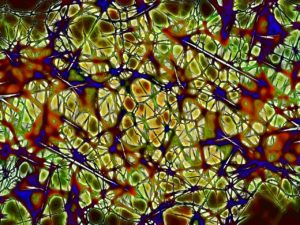So you’ve talked to your doctor and gotten the diagnosis: early-onset Alzheimer’s.
After the initial shock, your doctor starts to talk about promising new drug therapies. You might then go to the Internet to read about symptoms and prognosis and it’s pretty grim.
You’ve got another alternative that your doctor may not have mentioned.  Recent advances in brain research indicate that the brain isn’t like you learned in high school, with different areas doing specific tasks. Instead, the brain is plastic throughout life: our brains can reshape themselves, so that when one area is damaged, other areas can take over the tasks of the damaged part.
Recent advances in brain research indicate that the brain isn’t like you learned in high school, with different areas doing specific tasks. Instead, the brain is plastic throughout life: our brains can reshape themselves, so that when one area is damaged, other areas can take over the tasks of the damaged part.
The physical damage caused by Alzheimer’s is undeniable — the brains of Alzheimer’s sufferers are damaged. But the damage is in spots here and there. Brains are resilient and you can train your brain to remap itself — in effect, using your undamaged tissue to take up the slack from the damaged bits.
It’s not as fast and easy as taking a pill, but it’s also safer (non-intrusive) and you’re in control. You can get back your life, at least for a few years. The process is similar to the way you’d train for a marathon or how you’d practice if you were a serious amateur musician preparing for a big concert or recital. Except you’re not in training for a triathlon, you’re in training for your life.
Your doctor probably didn’t suggest this approach because this kind of program isn’t widespread or well known. Practices that take time and effort aren’t part of their repertoire because they don’t have time to supervise and they get paid for office visits only. When it comes to alternative methods that require concerted effort spread over months, they are out of their comfort zone.
If this sounds like an approach that you might want to try, here’s what you can do.